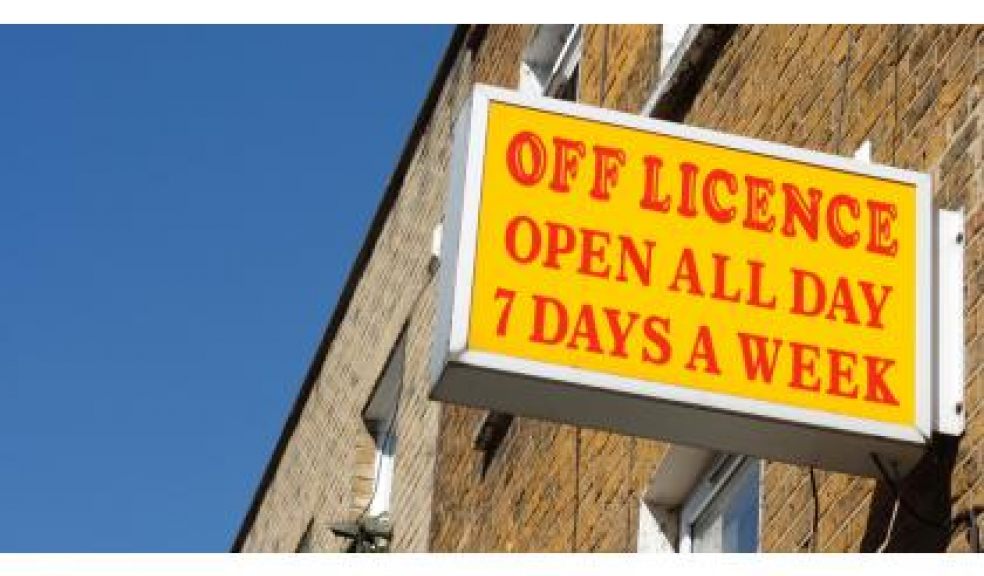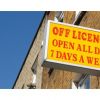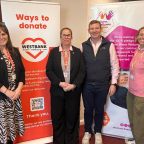
Supermarkets discuss alcohol crime with Devon and Cornwall PCC
Devon and Cornwall’s Police and Crime Commissioner Tony Hogg will today (Wednesday 5 March) sit down with major supermarkets and retailers to discuss the availability of cheap alcohol and the impact it has on crime and disorder.
Partly due to the rise in cheap supermarket deals, alcohol is now 45% more affordable than it was in the 1980s, which experts say has lead to a major change in how people drink socially- most notably through the relatively new practice of ‘pre-drinking’ or ‘pre-loading’.
The growing prevelence of 'pre-loading', the practice of drinking heavily before heading out, has been especially noticable in 17-25 year-olds and has posed significant challenges to the 'pub/club' models of policing town and city centres.
In Devon and Cornwall alone, alcohol related crime and anti-social behaviour is estimated to cost around £366m year, while nationally costs could be as high as £11bn a year.
Nationally victims reported that they believed offenders were under the influence of alcohol in around half (47%) of all violent incidents, or around 917,000 offences.
“There is no ‘quick fix’ but I want this meeting to signal the start of long term engagement with the supermarkets and retailers.” said Police and Crime Commissioner Tony Hogg.
“I am pleased that many have accepted this invitation to meet with me because I want to give them the opportunity to talk about the work they already do in this regard.
“I will certainly not be ‘lecturing’ them, but I will be looking for them to fully understand the issues here, and play their part in developing a considered, educated and joined up approach. I am also continuing dialogue with those that can’t attend this initial meeting.”
Mr Hogg has also said he will make alcohol related crime a major focus of his updated Police and Crime Plan which is due to be published later this month.
Mr Hogg added: “Considerable policing resources are needed to deal with alcohol related crime and disorder. There are many factors that influence this and I am keen to take time to seek advice from a wide range of people to make sure that we get this right."
Mr Hogg has also commissioned a short film to show at the start of the meeting available below this article.
It contains interviews with Sarah Whitcher, from Plymouth, who has battled alcohol problems since being a teenager.
Sarah first met Mr Hogg at a public surgery event where she explained how the availability of cheap alcohol had led her into a life of addiction and then crime.
Now recovering, she wants to help Mr Hogg tackle these issues and has a clear message.
“When I was 18 I was getting into trouble,” she said.
“I was going out drinking. I wasn’t really getting the support that i needed at the time and I don’t feel that people really helped me.
“I don’t think the other services really understood what my problem was. I want to help other young people to stop them going through the routes that I have gone through, because it’s not a life.
“It’s a vicious circle and you get into that and it’s hard to get out of. A lot of it can lead to death. Drinking can lead to death. It’s a consequence of how much you have to drink with obviously the cheap alcohol at the present time in supermarkets."
The film also includes an expert account from Dr Adrian Barton from Plymouth University, who has carried out research into modern drinking patterns.
Dr Barton has carried out research in the city, mainly with students, and has concluded that drinking cheap alcohol at home before going on to pubs and clubs much later has created a ‘cultural shift’ in drinking patterns which has impacted on crime and disorder on our streets.
“I think we need to stop basing our policy on a pub / club model,” he said. “It’s flawed and doesn’t reflect reality.
“We need to recognise that, if we’re serious about the night-time economy, you have to recognise where alcohol is being consumed, and it would appear for the 17-25 year olds that the bulk of the alcohol is being consumed at home.
“I think we need to recognise that, and begin to engage with supermarkets to get them to think about the impact the alcohol they are selling is having on the night-time economy."
The link between alcohol ‘pre-loading’ and crime has also been reported by police officers.
Deputy Chief Constable Bill Skelly said: “There is no doubt that alcohol has a huge impact on our communities and the resources of Devon and Cornwall Police.
“A large proportion of violent crime in particular is related to alcohol and the associated antisocial behaviour that it causes. It’s the duty of all licensees to sell alcohol responsibly, whether this be local bars or the larger supermarket traders.
“We are keen to build on the good work that has already taken place and develop effective ways of preventing the misuse and abuse of alcohol in the home and in public places.
“I welcome this initiative by the Police and Crime Commissioner to tackle this issue and bring all agencies and retailers together in a bid to deal with the impact of alcohol on our local communities.”


















